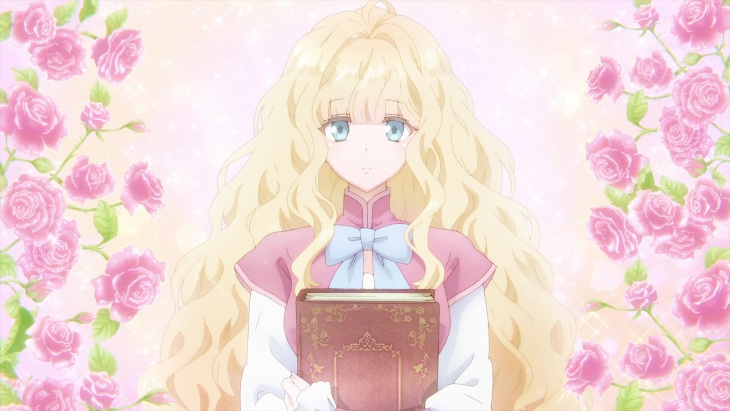
“In that case, let’s go to the conservatory. If you’re reading your book next to me…”
When I reviewed the first episode of Bibliophile Princess, I noted that the story and aesthetic were reminiscent of older shojo anime and manga from the 90’s and early to mid 2000’s. I found this retro styling to be a refreshing change of pace from modern romance anime, not that I dislike those by any stretch of the imagination. Despite that, the story has great hardship overcoming an issue which lingered even in the background of the first episode. For all the charm the style and premise bring to the table, the structuring of the narrative hamstrings the show, preventing it from ever being as great as it could be. What should be a pleasant story of knowledge and insight exerting themselves over paranoia and underhanded tactics is undone by meandering dialogue and inept exposition. While I enjoyed my time with Bibliophile Princess well enough, it was easily the most frustrating anime I watched this season, as interesting characters and a delightful premise crashed into poor presentation and hackneyed writing. The phrase “show, don’t tell” gets thrown around a lot, but if I was giving Bibliophile Princess an award, it would be the award for most “Please Show, Don’t Tell Anime of the Season.”
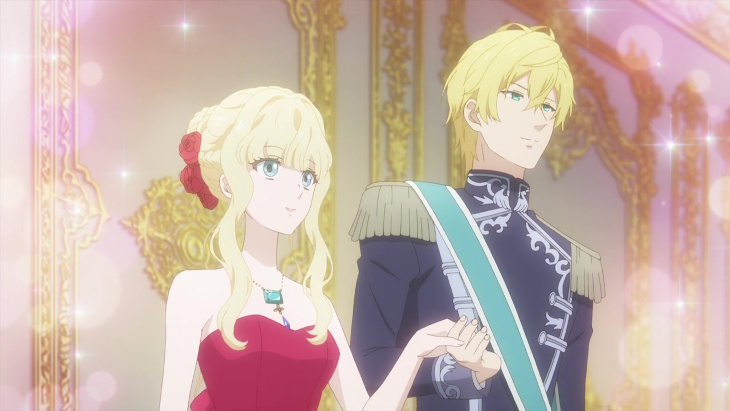
The series follows the titular princess, Elianna Bernstein, a young noblewoman who has long indulged in her obsession with reading to the exclusion of all other pursuits. When the kingdom’s Prince Christopher asks for her hand in marriage, he uses access to the royal archives as a bargaining chip, and Elianna is quick to conclude that her true purpose as a fiancé is to dissuade other suitoresses from occupying too much of his time as he endeavors to develop his skills as a ruler. True to her theory, Christopher is committed to learning the skills necessary for his position. However, as they get older, Elianna begins to recognize that her presence is no longer keeping political and romantic rivals from trying to woo the prince, and finds herself deeply upset by the possibility of losing what she thought of as a pretend engagement. However, Christopher has been playing three-dimensional romance chess, as it is revealed that over the years he had been cultivating allies to lend political support to Elianna becoming the new queen consort, and all the while doing his best to court Elianna. From there, the show mainly focuses its attention on the political machinations and threats to both their relationship and the country as a whole. The rest of the cast don’t really function as characters, which is a shame, since there’s potential and occasionally good banter there. Unfortunately, none of them have notable arcs, so they only serve as extensions of the primary narrative, prattling off plot details on cue.
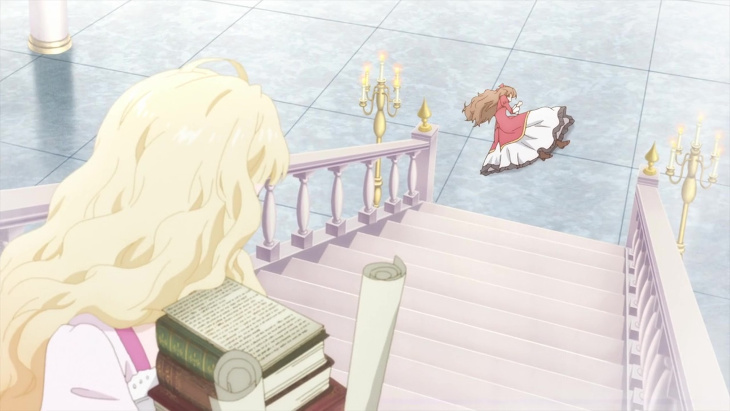
I have two primary problems with Bibliophile Princess. The first is that I don’t understand how the world is set up. The names of countless countries, regions and rulers get thrown around, but I can’t begin to keep track of these places and people, despite them often being central to the plot. A key reason for this is that the show never shows the viewer a map of the region or a visual of these characters unless they’re appearing directly before the main characters. The series is mainly focused on the political dealings of the country of Sauslind, but I can’t even tell you how the country is shaped. It’s relatively rare for me to “check out” of a series, but when characters in Bibliophile Princess start rambling out this or that duke or the military alliance with Madeupthisland, the lack of visual aids makes it impossible for my mind to stay tethered to the proceedings. The second issue, which might just be the first issue pushed to its logical extreme, is the series’ tendency to convey everything through dialogue. One could argue this is a slightly amusing issue, given the series prominently features books, but aside from the cute irony, it’s mainly an annoyance. Most arcs follow a simple progression. Eli will encounter some issue that usually has some political conspiracy at its heart. Eli will be troubled by these developments, but won’t know how to address them. Then when the plot reaches a crisis point, someone will step forward and reveal that everything has already been resolved due to something Eli did or said (often offscreen). There are some variations on the progression, but this particular series of events recurs several times during the course of the season. When you combine this with the previous issue of a confusing world state, these last minute revelations become more baffling than anything else.
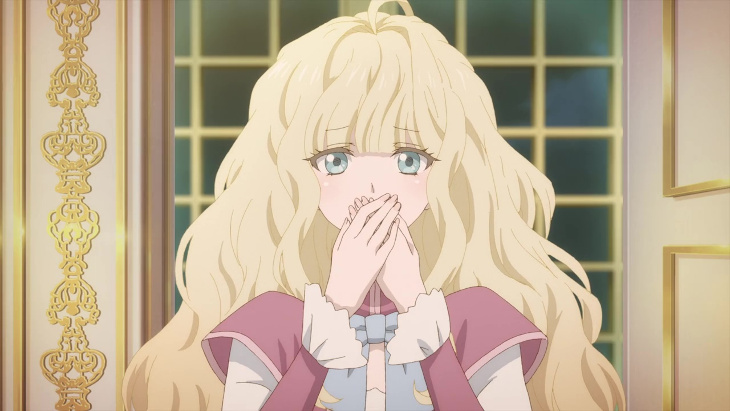
Back when the season began, I noted that it wasn’t a surprise for Madhouse to turn in a polished product. While that’s technically true, I can’t help but feel that Bibliophile Princess wasn’t on par with the studio’s past standards. The animation and flourishes are occasionally gorgeous, but compared with shows like A Place Further than the Universe, One-Punch Man, or even looking back over a decade ago to the first season of Chihayafuru, the production here often looked rather plain and unassuming to a fault. I’m struggling to understand how a studio that produced such stellar titles also created a show where the basic implementation of the narrative seems so unrefined. Anime is usually a highly collaborative effort, so I don’t know how this rambling exposition made its way into the script without any apparent course correction. There is the skeleton of a great series here, but its charm is stifled by the overstuffed dialogue. Whenever I’m reviewing a show, I ask myself to whom I could recommend this show. While I don’t hate or dislike Bibliophile Princess, it ultimately couldn’t be recommended to anyone outside of an extremely niche audience. Even then, there are better shows to turn to or you could just go read a book.
Before I wrap up, a few Notes and Nitpicks:
- Elianna is really smart sometimes, and is a prodigious moron at other points. The series is extremely inconsistent about that, and it leads to some immense aggravation when the show starts approaching its end, and she’s having the exact same hand wringing that she was having at its start. It’s for that reason that I’d highlight episode 10 as the worst episode of the series, since it feels like an insufferable retread of all of the show’s problems up until that point.
- The final episode comes to a screeching halt when, no joke, one of the side characters stops to briefly recite a fable which Elianna randomly cited. The only reason I didn’t hate it was, for one, it actually provided visuals to aid the story, which is a rarity usually only reserved for such fables, and secondly, it was mercifully brief. That being said, it shows up as a head scratching tangent that didn’t actually lend anything to the story at hand.
- I could see how the geopolitical machinations could work better in the original work, as it’s much easier to flip back in a book and confirm details like, “Is this the region that was mentioned previously?” or “Was this the noble who was involved in that scandal?”
- There’s an issue I have with this show that I think could be fixed with one simple change in translation. Bibliophile is not an insult. Bookworm, sure, but not bibliophile. There are several points where characters throw the term at Eli like it’s some deep cutting insult, but that’s hilarious because it’s just a normal word for someone who loves books. It’s not like she’s some dirty philatelist.
- I actually… don’t know what the direct translation of Mushikaburi-hime is. I’ve spent a decent amount of time trying to figure that out. Mushi and hime are straightforward, but kaburi doesn’t mean much to me. Bug-head princess? After checking with Birdy, he confirmed what I suspected, which is that bookworm would probably be a more loyal translation.

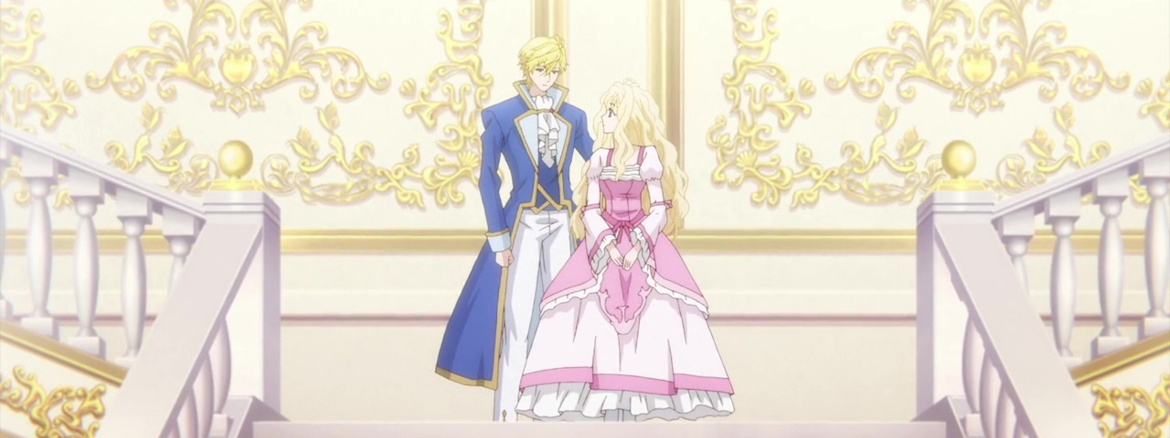


Add comment